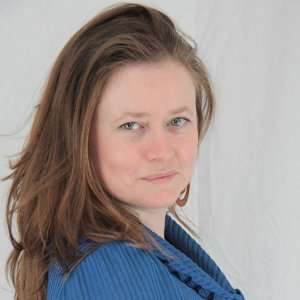Thea Musgrave’s music deserves far greater recognition that it has had to date. Fortunately, the Barbican devoted an entire day to her works as part of their Total Immersion series. This featured not only performances of seminal works, but also talks, including, on this occasion, with the composer herself, over from the USA where she now resides.
Before the evening’s orchestral concert, we were treated to performances of the chamber works by musicians from the Guildhall, and a cappella choral works by the BBC Singers, directed by Paul Brough. The former fared better, bringing to life Musgrave’s core belief of chamber music being individuals with their own expressive voices finding a mutual song with impressive, energetic performances from some extremely talented young musicians. The BBC Singers were slightly hampered by a bottom-heavy imbalance, which led to some solos and upper lines being lost. However, Musgrave’s flair for word-painting was relished, with moments of great humour and devotion.
Earlier in the day, Musgrave had stressed the importance to her of collaborative working with performers; this was very evident from the warmth displayed to Martin Owen after a bravura performance of the Horn Concerto. This work is what Musgrave refers to as “dramatic-abstract”; though with no programme, it has dramatic elements that the audience can interpret as they find. In the case of the concerto, this includes members of the brass section moving to various parts of the performance space to interact with the soloist. Owen certainly embraced the dramatic side of the work, calling out to his friends in the horn section and having friendly squabbles with the trumpets. The end of the Capriccioso section sounded like a fight breaking out at a carnival, while sliding strings and spiteful brass created tension and humour respectively.
This was preceded by The Seasons, which sparkled from the beginning. The work was inspired by a number of paintings, from which Musgrave creates abstract musical scenes.“Autumn” is a storm swallowing up a hunt, which here was given a Romantic sound and shape by Brabbins as the orchestra unfolded destruction. In “Winter”, the oboe cut a lonely figure wandering through a freezing soundscape; as it is inspired by Washington crossing the Delaware, The Star-Spangled Banner makes an appearance, although it was at its most effective when hinted at, rather than being baldly stated. The strings plunked melting droplets into flowing streams and rivers in “Spring”, with woodwinds twittering in the trees. “Summer” once more featured humorous quotations of the US national anthem, here joined by the Marseillaise. The climax saw them both deftly interwoven with racing strings, kept on the just the right side of bombastic.
Excerpts from Songs from a Winter’s Evening had been heard earlier in the day at one of the talks, perhaps in an attempt to make up in part for it being sadly forced from the evening’s concert due to illness. It was replaced by Green, a work for strings, which was extraordinarily polished for a short-notice substitution. Brabbins coaxed a most sensitive sound as they wrestled between two tonal centres just a semitone apart. A wistful arioso in E major was interrupted by a double bass F, which swelled to take over the other sections in a cluster choir, leaving one final violin clinging desperately to an E.
Turbulent Landscapes, like The Seasons, was inspired by paintings, although on this occasion all were by Turner. Each movement involves a soloist, who stands to deliver their image. “Sunrise and Sea Monsters” had something of the fantastical about it, though the tuba sea monster took some time to show himself. “Shipwreck”, partly inspired by Fingal’s Cave, had shades of Mendelssohn; however, the oboe solo didn’t quite reach the depths of an inconsolable mourning widow. In “Snowstorm” the horn, depicting Hannibal, issued bellowing commands while strings trudged exhaustedly through a death-rattling woodwind and percussion snowstorm. “War” seemed less clearly representative in its depiction of Napoleon looking back on his life from exile; although the trumpet conveyed a sense of internal conflict, the historical scenes were quite lost. The opening of “The Burning of the Houses of Parliament” was more reminiscent of Monet’s Westminster than Turner’s. However, once the flickering piccolo lit the flames, a rising sense of horror grew from the orchestra. In the final movement, “Sunrise, with a Boat between Headlands” the orchestra groped in the murk before the clarinet’s morning bird called in the sun, and a brief return of the sea monster from the opening.
Musgrave has assimilated a vast array of techniques into her own unique voice, into which Total Immersion gave great insight. Highlights will be broadcast on BBC Radio 3 on the week beginning March 3rd, and are thoroughly recommended.


